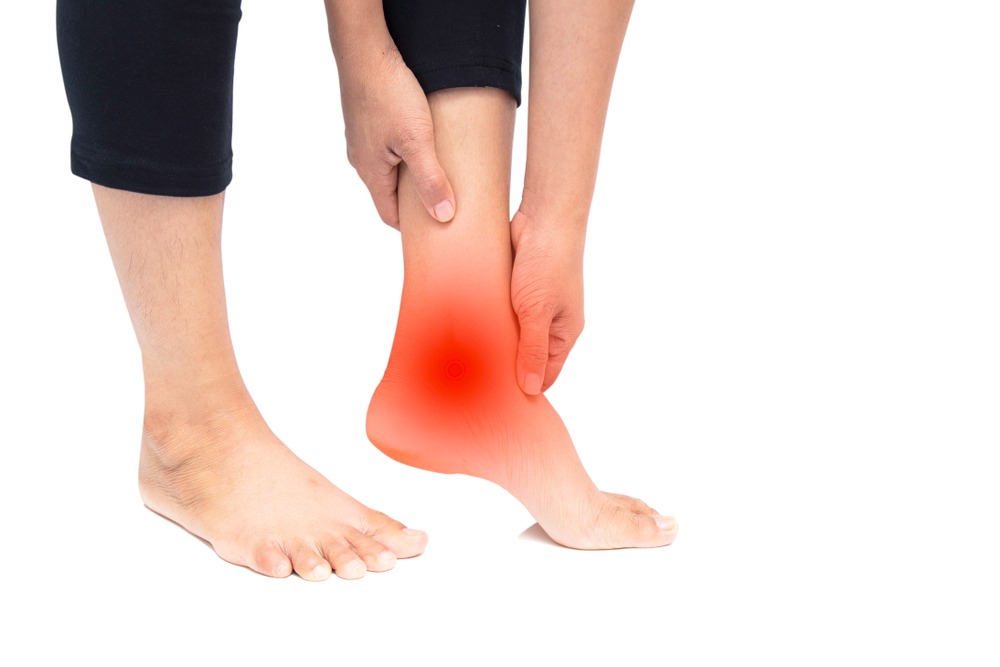Peripheral neuropathy represents a broad category of conditions that affect the peripheral nerves. Patients with some type of peripheral neuropathy can experience pain, numbness, tingling, and more as the nerves that are responsible for carrying messages to and from the brain become damaged.
At LaserLab™ in Lake Mary, FL, we seek to meet the needs of our patients who are grappling with peripheral neuropathy symptoms through our innovative Summus Laser technology. Our approach aims to alleviate discomfort and improve the quality of life for our patients through our laser treatments and spa-like amenities.
When it comes to the many types of peripheral neuropathy, it is important to remember that each comes with its own set of symptoms, causes, and treatment strategies. With each consultation, we look closely at your individual case to develop the best treatment plan for you and to help you make more informed decisions about your health.
What Is Peripheral Neuropathy?
Peripheral neuropathy refers to a range of conditions affecting the peripheral nerves – the network of nerves that connect the brain and spinal cord to the rest of the body. This nerve system is like a communication highway, transmitting vital messages about physical sensations back to your brain. When this system is disrupted due to damage or disease, it can lead to peripheral neuropathy.
Peripheral neuropathy symptoms can range from numbness, tingling, and pain, usually in your hands and feet, to more severe complications like muscle weakness or difficulty moving. While many peripheral neuropathy treatments focus on pain management, our treatments focus on the regeneration and healing of nerves for more long-term relief.
What Are the Different Types of Peripheral Neuropathy?
There are more than 100 distinct types of peripheral neuropathy, each presenting its own unique set of characteristics and symptoms. Despite this diversity, these numerous forms can generally be categorized into four primary categories:
Motor Neuropathy
When peripheral neuropathy predominantly affects the motor nerves, we refer to it as “motor neuropathy.” These nerves are crucial for movement as they control our voluntary muscle activities. When damaged or diseased, these nerves can result in symptoms like muscle weakness, cramps, muscular atrophy, and involuntary muscle twitching or spasms. While these symptoms are typically more uncomfortable than dangerous, they can significantly affect a person’s quality of life, interfering with their ability to perform daily tasks.
Sensory Neuropathy
Sensory neuropathy involves damage to the nerves that carry messages of touch, temperature, pain, and other sensations to the brain. This damage can lead to a variety of unusual and often uncomfortable sensations. Symptoms can range from pain and tingling in the extremities to more troublesome symptoms like extreme sensitivity to touch. In some cases, individuals might experience a loss of balance and coordination. Moreover, in certain situations, individuals may lose the ability to discern changes in temperature or feel pain, putting them at risk of unnoticed injuries.
Autonomic Neuropathy
The autonomic nerves control the activities of our internal organs and processes that we don’t consciously control, like heart rate, blood pressure, digestion, and bladder function. When peripheral neuropathy affects these nerves, it can cause digestive issues like bloating and constipation, abnormal heart rate, difficulties in regulating body temperature, sexual dysfunction, and even problems with sweating too much or too little. Autonomic neuropathy can be particularly tricky to diagnose due to the broad range of symptoms.
Combination Neuropathies
Combination neuropathies, as the term suggests, can include symptoms of any of the three types mentioned above. These conditions can present a mix of symptoms that affect movement and sensation. One such example is Charcot-Marie-Tooth disease, a hereditary neuropathy that leads to muscle weakness and numbness, predominantly in the feet and legs.
What Are the Causes of Peripheral Neuropathy?
- Diabetes: The most common cause of peripheral neuropathy worldwide is diabetes. High blood sugar levels can damage the nerves over time, leading to Diabetic Neuropathy. This condition primarily affects the nerves in the feet and legs, resulting in symptoms like pain, numbness, and weakness.
- Injury or Trauma: Injuries from accidents, falls, fractures, or surgeries can sometimes damage peripheral nerves, leading to neuropathy.
- Chemotherapy: Chemotherapy drugs used to treat cancer can cause peripheral neuropathy. These powerful medications can damage peripheral nerves, leading to chemotherapy-induced peripheral neuropathy (CIPN). Symptoms usually start in the fingers and toes and can progress up through the limbs.
- Autoimmune Diseases: Autoimmune diseases, where the immune system attacks the body’s own tissues, can also result in peripheral neuropathy. Conditions such as rheumatoid arthritis and lupus are known to cause neuropathy.
- Vitamin Deficiencies: Certain vitamins, including B1, B6, B12, and E, are crucial for nerve health. A deficiency in these vitamins can lead to peripheral neuropathy.
A Customized Plan for Treating Peripheral Neuropathy
At our clinic, we believe that peripheral neuropathy treatment should be more than simply managing symptoms with medications that come with a host of other side effects. Instead, we seek to restore your body’s health through regenerative laser treatments.
The Summus Laser uses red and infrared laser light that penetrates deep into the tissues of your body, targeting damaged nerves and helping them to repair and recover. A mild photothermal effect from the treatment can also help to relax surrounding muscles, increase blood flow, and improve your body’s ability to convert oxygen into energy. All of this helps to improve nerve function and can effectively treat peripheral neuropathy.
Consultation for Peripheral Neuropathy Treatment in Lake Mary, FL
At LaserLab™ in Lake Mary, FL, we don’t just offer laser treatments with Summus Laser on their own. We combine these peripheral neuropathy treatments with a whole range of spa-like amenities, such as a hydration bar, oxygen-infused rooms, stim machine therapy, aromatherapy, and much more, to improve your overall health and promote your wellness. To schedule your consultation, call us today at (407) 440-9011 or contact us through our website.

